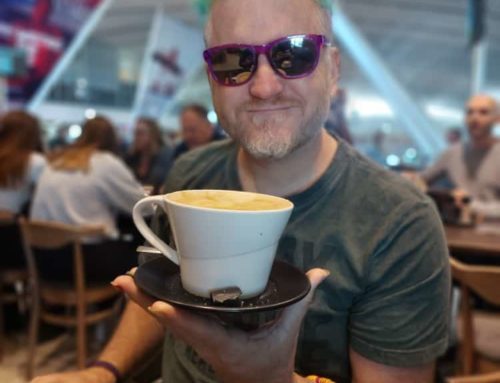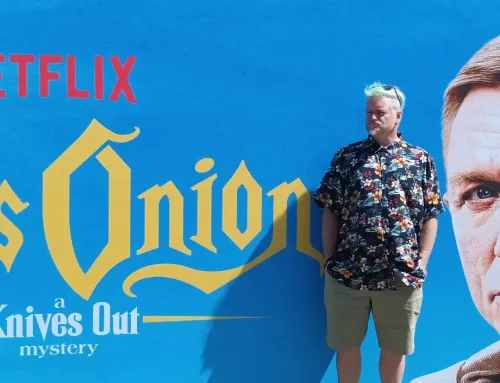Having spoken about and encouraged the #NotOnOurWatch hashtag commitment for probably over a year now, i just had my second big encounter [you can read about the first one here], which i wrote about on Facebook:
Climb out of my car at Canal Walk to see this decently large tattooed white guy swearing at a smaller foreign black man car guard cos of some entitled not-getting-the-information-he-was-looking-for nonsense so I shouted at him and walked over to make sure the rest of the interaction was civil and apologised to the black guy. Then walked away with adrenalin pumping.
This is no heroic by the way. This should be normal. It is crucial.#NotOnMyWatch means i have committed myself to interrupting acts of racism or bullying or whatever it was. We need to keep doing this. The story is shared to invite you to do the same when it is your turn.
While i was writing my Facebook status, my friend Megan was busy compiling this blog post in which she recalled a racist encounter she had observed and how she understood people’s protests through that lens.
Some people gave some push back to my post on Facebook questioning whether an aggressive response was the best way to respond in the scenario and would it not lead to more aggression and would a more calmer approach have not helped more and been more beneficial to everyone? For example, who might tattooed guy taken out his anger on next? Good questions and they made me think.
A third way
i chatted to my mate Mahlatse later that night and asked him whether he thought i could have done better. It feels like there is no doubt that my actions had the man being attacked in mind and hopefully made a difference to him. Even from the perspective of the contrast between a white guy treating me like trash and yet another white guy has stepped in to let me know in no uncertain terms that I am not trash and that this other guy was out of line. From a place of restoring dignity or at least recognising and naming it, that feels like it was a good thing.
Option 1: Do nothing [too many people go for this one – definitely worst option in my book]
Option 2: Insert yourself aggressively with the sole focus being the victim [for me the victim is the primary option and so even looking back and thinking i possibly could have handled it a different way, the fact that i stepped in with him in mind i am totally okay with]
But is there a third option that has the redemption of the perpetrator in mind as well?
That was the challenge/inspiration that Mahlatse brought. As a follower of Jesus that is an essential thing to remember: that both the oppressor and the oppressed are in need of being freed from oppression.
With that guy in that situation with that level of frustration that was evident, i don’t honestly know that trying to step in calmly and assess the situation and guide it to a peaceful ending would have made much of a difference. And there are certainly situations where it won’t. But i think i would have liked to have given that a try [*That said, when the incident plays out in front of you, there is a half second of thinking before springing into action and so weighing up all the options and acting in the most responsible and helpful way isn’t always necessarily going to be at the fore – which is why thinking about these things before they happen is super helpful]
Peace Justice Witness
As someone who has spent a little bit of time as a Peace and Justice Witness on the university campuses last year, we had two main focus points:
[1] Be a presence and observe.
[2] The hope that our presence would in some way de-escalate the violence/protests as opposed to escalate it.
That really is the hope in these situations and encounters – that we will be able to de-escalate what is happening and help change the narrative that is being played out.
So yes, it possibly [not definitely] could have played out a little differently and maybe even better. Hindsight is a great gift to have when you are sitting at a computer keyboard, particularly reading someone else’s story of intervention as opposed to sharing your own, but not as helpful in the moment. And lastly for me, if i am going to get it wrong, then i want to get it wrong in terms of the person being oppressed, the victim. i am way more okay with that then if i had crossed over the road and walked on as if nothing had happened.
Your thoughts and personal stories? Have you ever had such an encounter where you went in with a softer approach and it worked? Please share the details with is to give us some hope and some help… and let’s keep committing to #NotOnOurWatch wherever we land on how we do it…






![The Road to the Catan World Champs in Malta 2022! [Part II]](https://brettfish.co.za/wp-content/uploads/2022/11/IMG_9944-scaled-e1669831201283-500x383.jpg)
Oh Brett, I was so interested to see how you were going to thrash this out, but I think this post undoes a bit of the great work you are always busy with and actively doing. What I am trying to say is, there is so much YOU in this post. I hope you will reread it and see. Your motivation is sound and I believe your actions are pure, but the self analysis, for me, is problematic.
Thanks for the comment – will go back and take a look…